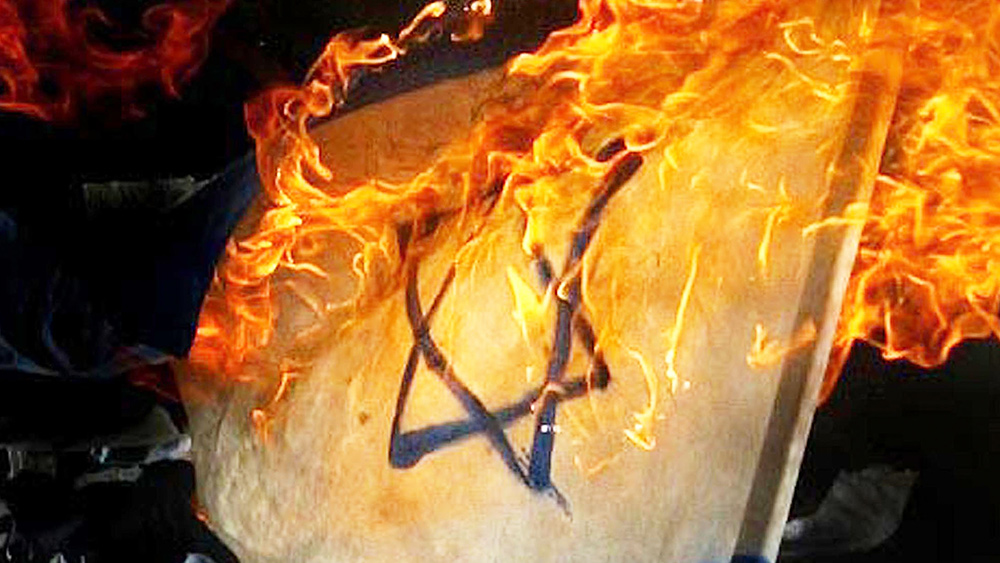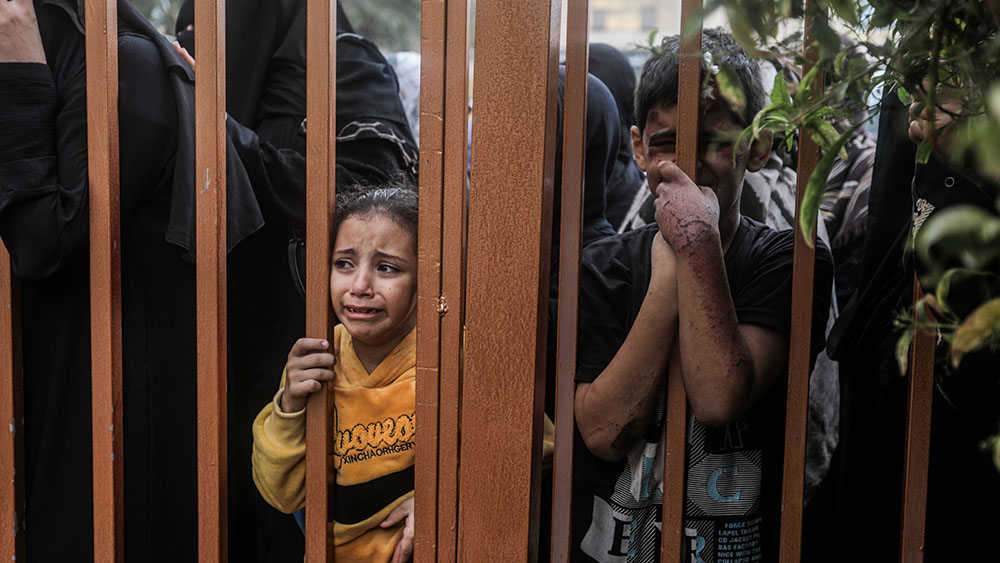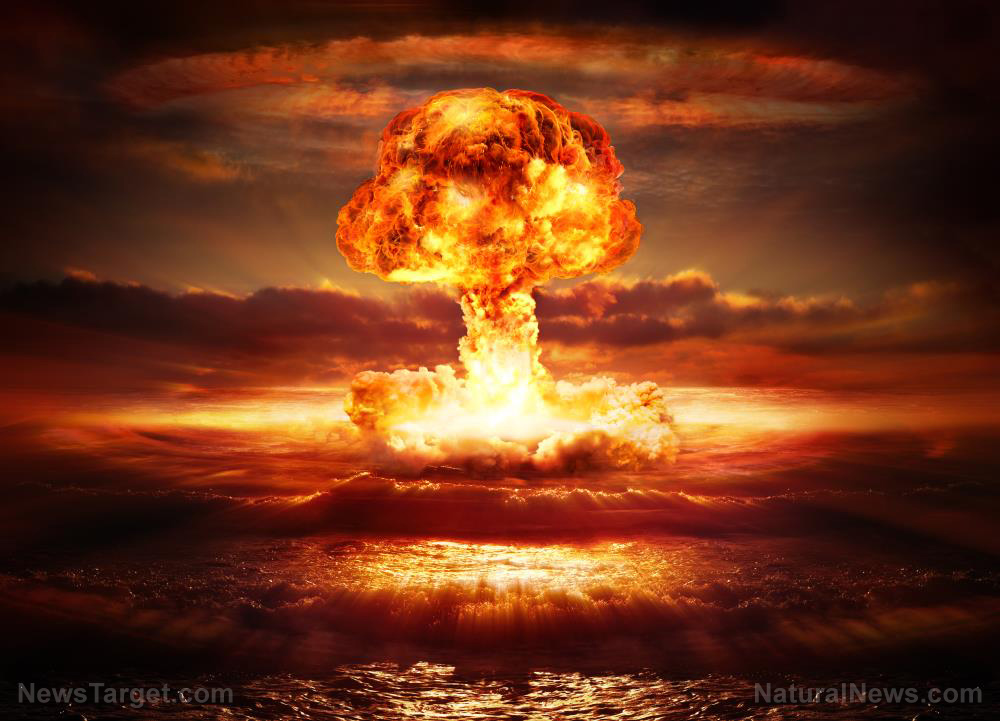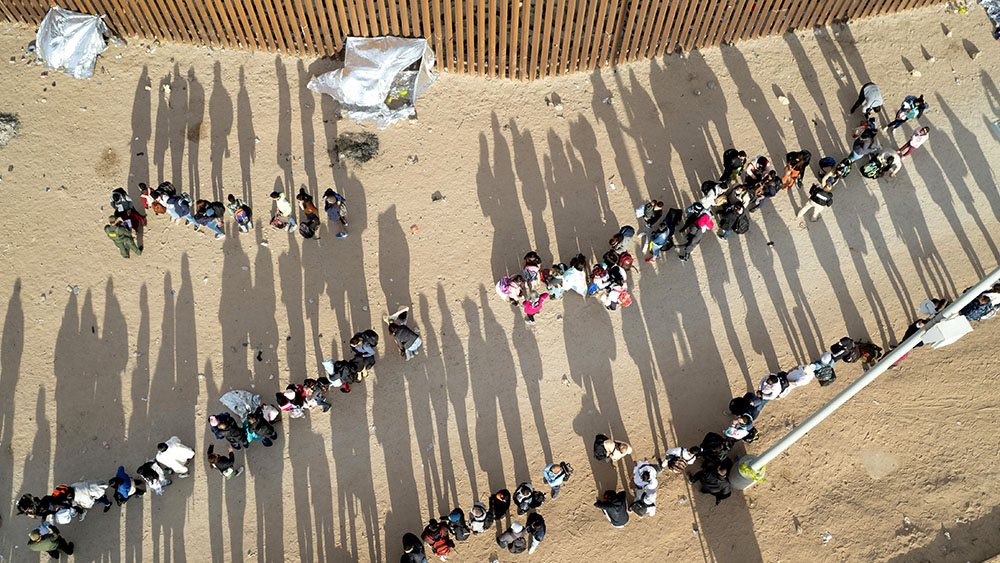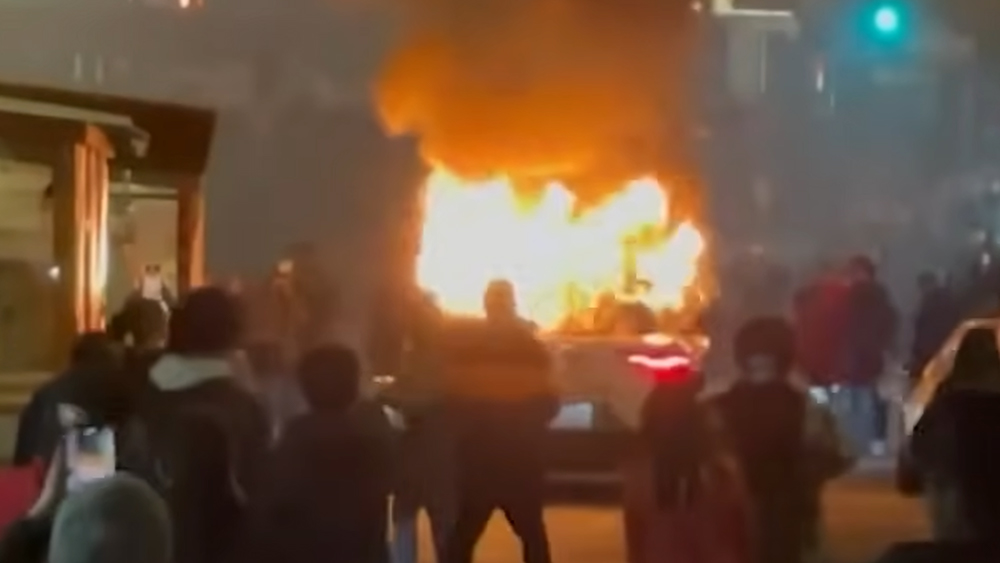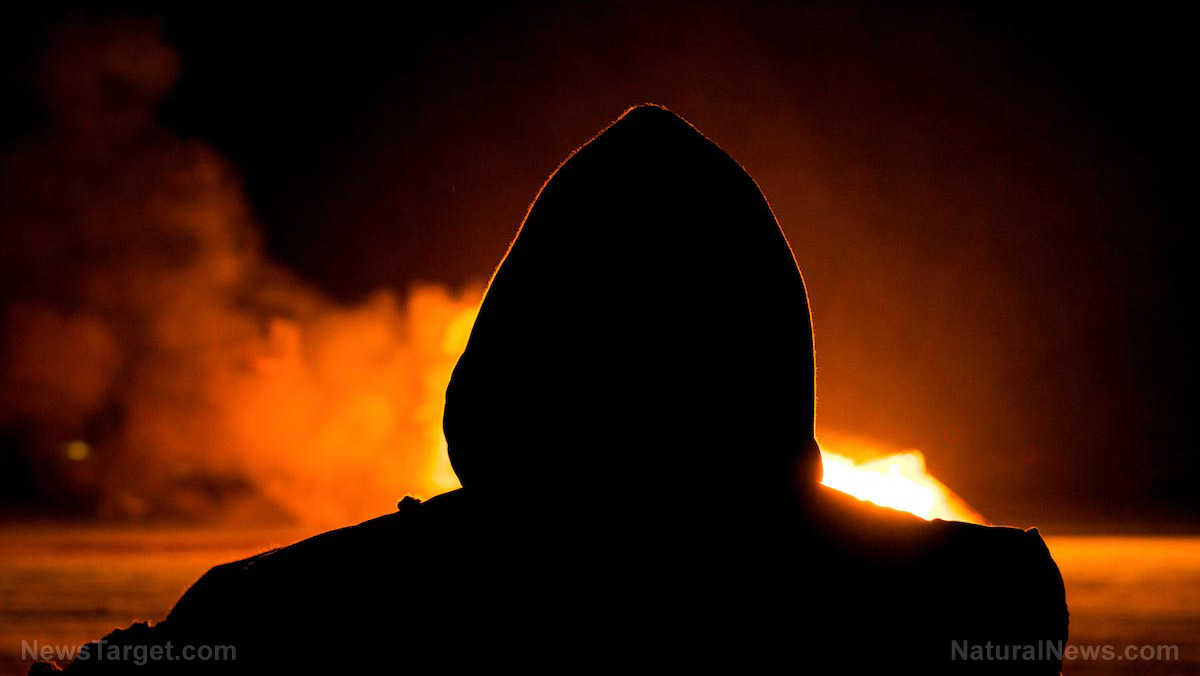Israel’s entire occupation of Palestine since 1948 ruled illegal by the UN
09/23/2024 / By Belle Carter

The 193-member United Nations General Assembly (UNGA) recently agreed with the Palestinian resolution demanding that Israel end its invasion of Gaza and West Bank within a year and the imposition of sanctions for non-compliance.
A majority of 124 voted in favor of the resolution while 14 countries voted against it, including Israel and the United States. U.S. allies Australia, Canada, Germany and Ukraine and another 39 countries chose to abstain. No votes were cast by the remaining 12 nations.
The resolution put forward by the Palestinian Authority (PA), which was passed on Wednesday, Sept 19., is not legally binding. But it includes stern rebukes of Israel and won the support of many nations in the West that have traditionally backed Israel.
It was based on the advisory opinion of the world’s highest court, the International Court of Justice (ICJ), back in July. According to ICJ, Israel is “abusing its status as the occupying power” by building and expanding settlements, using the area’s natural resources, annexing and imposing permanent controls over lands, and undermining Palestinians’ right to self-determination. (Related: ICJ orders Israel to end its 57-year military occupation of Palestinian territories “as rapidly as possible.”)
“It’s an important precedent because one of the main problems with Palestinian issues for the last 75 years is that nobody was putting actual deadlines,” former advisor to Palestinian leadership Nizar Farzakh told Middle East Eye. “In international politics, it becomes a talking point that countries like South Africa or the global south, in general, can use, because it’s the UN General Assembly – the mood of the international community.”
According to the resolution, Israel should “bring to an end without delay its unlawful presence in the Occupied Palestinian Territory, which constitutes a wrongful act of a continuing character entailing its international responsibility, and do so no later than 12 months.”
It also calls for Israel to comply with international law and withdraw its military forces, immediately cease all new settlement activity, evacuate all settlers from occupied land and dismantle parts of the separation wall it constructed inside the occupied West Bank.
The resolution also demands Israel to return land and other “immovable property” as well as all assets seized since the occupation began in 1967 and all cultural property and assets taken from Palestinians and Palestinian institutions.
Finally, it also provides that Israel should allow all Palestinians, who were displaced during the occupation, to return to their places of origin and make reparations for the damage caused by its occupation.
World leaders react to UN’s decision
UN’s decision to agree with the PA-raised resolution gathered mixed reactions from world leaders and international organizations.
For the New York-based Human Rights Watch, Israel should immediately heed the demand of an overwhelming majority of UN member states. The global movement Amnesty International shared this sentiment, emphasizing that it is crystal clear “that Israel’s 57-year occupation cannot be allowed to continue any longer.”
“Over the past 11 months, the systematic human rights violations that are a hallmark of Israel’s brutal occupation and system of apartheid have drastically intensified,” the organization’s Secretary-General Agnes Callamard said, adding that Israel should immediately withdraw its forces from the occupied West Bank and Gaza and remove its settlers from the West Bank and East Jerusalem.
European Union Foreign Policy Chief Josep Borrell said in a statement: “UN General Assembly has forcefully reaffirmed its commitment to the realization of the right of the Palestinian people to self-determination, including its right to an independent and sovereign State, living side by side in peace and security with Israel, following the relevant resolutions of the UN Security Council and the UN General Assembly.”
Hamas said it welcomes the adoption. It added that the decision reflected “the international community’s solidarity with the Palestinian people’s struggle.”
Meanwhile, Danny Danon, Israel’s ambassador to the UN, criticized the result of the vote in a post on X, formerly Twitter.
“This is a shameful decision that backs the Palestinian Authority’s diplomatic terrorism,” he wrote. “Instead of marking the anniversary of the Oct. 7 massacre by condemning Hamas and calling for the release of all 101 of the remaining hostages, the General Assembly continues to dance to the music of the Palestinian Authority, which backs the Hamas murderers.”
The U.S. mission to the UN mirrored this belief as it called the resolution “one-sided,” pointing to its failure to recognize that Hamas, “a terrorist organization,” still exerts power in Gaza and that Israel has a right to defend itself.
“This resolution will not bring about tangible progress for Palestinians,” the U.S. said. “In fact, it could both complicate efforts to end the conflict in Gaza and impede reinvigorating steps toward a two-state solution, while ignoring Israel’s very real security concerns.”
Israel Ministry of Foreign Affairs’ Oren Marmorstein also said on X that the resolution was “a distorted decision that is disconnected from reality, encourages terrorism and harms the chances for peace.”
Head over to IsraelCollapse.com to read stories related to this.
Sources for this article include:
Submit a correction >>
Tagged Under:
big government, chaos, Danny Danon, EU, Gaza, genocide, Globalism, Human Rights Watch, humanitarian, ICJ, invasion, Israel, Israel-Hamas war, Middle East, national security, occupation, Palestine, Palestinian Authority, progress, settlement, terrorism, UNGA, West Bank, World War III, WWIII
This article may contain statements that reflect the opinion of the author
RECENT NEWS & ARTICLES
COPYRIGHT © 2017 TERRORISM NEWS


